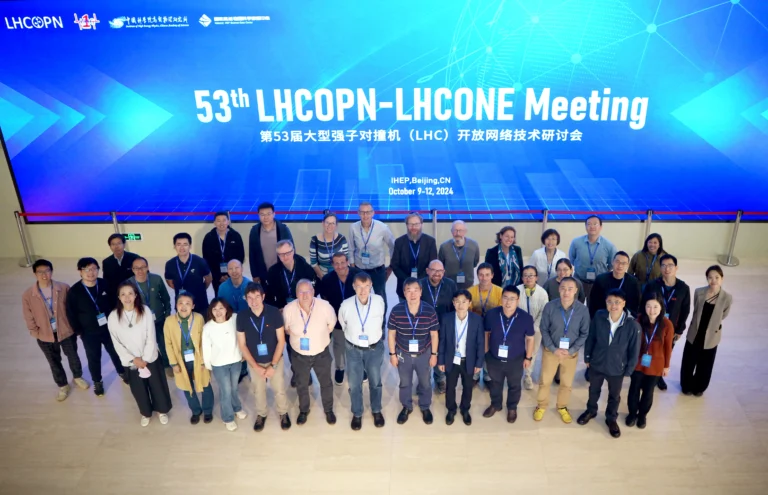This week, experts in high-performance networking, research computing, storage infrastructure, and high-energy physics experiments met in Beijing, China, for the biannual LHCOPN-LHCONE meeting.
The 53rd LHCOPN-LHCONE meeting was hosted by the the Institute of High Energy Physics (IHEP) of the Chinese Academy of Sciences. IHEP was recently designated a Tier-1 data center for the Worldwide LHC Computing Grid, marking a significant upgrade in China’s contribution to the LHC computing infrastructure. This upgrade was made possible in part by major improvements to research networking capacity between China and Europe, facilitated by GÉANT and CSTNET over the past year.
The meeting featured updates on participating research programs and experiments, roadmaps for the evolution of the LHC toward the High-Luminosity LHC, and discussions on the future network and computing requirements. Plans to enable research networks to meet these demands were also explored. Special attention was given to the evolution of research networks in Asia, Asia-Europe connectivity, and the network monitoring platforms and technologies that support the complex global distributed network and data infrastructure of the LHC, ensuring it delivers the required high performance.
The LHC (Large Hadron Collider) is the most demanding and high-volume science data infrastructure, and the largest consumer of research network capacity worldwide. NORDUnet has been a key contributor since the beginning, representing Nordic research networks and the Nordic WLCG (Worldwide LHC Computing Grid) Tier-1 facility. The LHC networking meetings bring together a multidisciplinary group of leading experts, driving key initiatives and advancing the state of the art in research networking.











